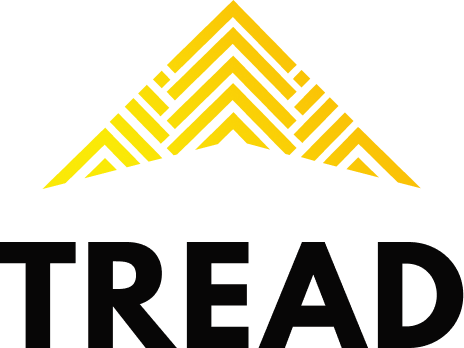12 must-know construction management tips
As a construction project manager, you’ve undoubtedly experienced a number of successes and failures throughout your career. The construction industry is constantly evolving and it can be difficult to balance everything that is needed to do your job well.
The difference between a construction manager and a successful and efficient construction manager is a specific set of skills and follow-through with how a project is managed. This article will cover key skills required for successful construction management and tips on how to successfully manage construction projects.
What skills are needed for construction management?
Construction managers should possess the following skills in order to perform their jobs to the best of their ability:
- Research and planning
- Risk assessment
- Critical thinking
- Problem-solving
- Detail-orientation
- Time management
- Business management
- Cost management
- Organization
- Communication skills
- Leadership
- Quality management
- Patience
- Technical skills
These skills are a baseline for effective project management. Below we will explain exactly how these skills can be used to improve your roles as a project manager and better manage construction projects.
Tips on how to successfully manage construction projects
- Plan ahead
- Be adaptable
- Budget accordingly
- Manage your time wisely
- Manage your team wisely
- Exercise patience
- Maintain good relationships
- Practice good communication
- Track everything
- Embrace automated reporting
- Use a single source of truth
- Stay up-to-date on industry knowledge
1. Plan ahead
One of the most powerful tips to successfully managing a construction project is to plan ahead. Construction project managers should have the foresight to anticipate what is needed and how to resolve issues that are likely to arise.
Effective project management calls for a high level of detail orientation. This skill is especially important to thoroughly review project plans and specifications and get a full understanding of the required scope of work. This in-depth review enables construction project managers to determine the types of resources required to execute the project. Resources like materials, equipment, tools, and manpower.
Be sure to work closely with your subcontractors and suppliers in the planning stage to ensure realistic timelines and project milestones being established.
In this early stage of a construction project, the project manager also needs to think critically to understand project risk and manage it using problem-solving techniques before finalizing the details. Blueprints and drawings are never perfect and conflicting issues will often arise between drafts and their execution. Common examples of where contradictions occur include mechanical, structural, landscape, or building code. Project managers should anticipate these issues with budgets and timelines in mind and have alternative solutions that work for everyone.
2. Be adaptable
Revisions are almost always needed as a construction project progresses. Developing new plans to get the project to completion is just part of the job. Construction managers should be adaptable and flexible enough to make these changes as they arise. Remain rigid enough to keep your project on schedule and within budget, but flexible enough to adjust project plans to keep it moving forward and avoid major delays.
3. Budget accordingly
On any given construction project, permits, materials, equipment, and wages are exchanged between multiple vendors. From the bidding process to the project closeout and billing, project managers are responsible for tracking and monitoring every cost that relates to the budget.
Look at historical project and company data to help with forecasting and budgeting. Frequently reviewing costs and tracking all transactions will help you identify budget changes that are needed as the project progresses. Consider using software that helps you balance your construction project budgets and forecast for the future. Look for a program that allows all vendors to input expenses and changes so financial disputes can be eliminated.
Read more: How to get paid faster and eliminate payment disputes
4. Manage your time wisely
Between planning, designing, coordinating, managing, and reviewing, project managers have a lot on their plate. Construction projects are constantly evolving and new problems bubble up to the surface all the time.
Effective time management, prioritization, and delegation skills are essential to being successful in your role and leading a project to successful completion. Use your team as a resource to coordinate and organize tasks in the most efficient and logical way possible.
5. Manage your team wisely
In addition to managing your time wisely, you should also be managing your team’s time wisely. Use spreadsheets and lists to organize your project teams. Communicate with them often to ensure everyone is on the same page and that timelines are realistic. If there are scheduling changes, notify everyone right away. Send emails as a paper trail and follow up with phone calls if urgent.
Part of being a good leader means checking in with your team often. Is everyone feeling supported and are they free from roadblocks to complete their work on schedule? Try developing a friendly rapport with everyone on your team—including those on the ground level at the construction site. This helps people feel heard and valued and makes for faster problem solving should issues arise.
Finally, develop a clear understanding of the duties and responsibilities of everyone working under you. This will make you a well-rounded project manager and can streamline communication and conflict resolution.
6. Exercise patience
Construction projects don’t always go according to plan. Many issues can surface throughout the construction process that cause delays and disputes. Change orders, budget and scheduling changes, weather conditions, material or supply delays, issues with subcontractors, re-negotiations, etc. You will need to keep your cool in order to deal with each situation in the most effective and professional manner possible.
7. Maintain good relationships
Since project management requires a great deal of engagement and communication across multiple vendors and stakeholders, it is critical to maintain good relationships with everyone involved in the project. This includes your team, project owners, subcontractors, suppliers, safety inspectors, and more.
Include stakeholders as much as possible to maintain good relationships. Give them access to shareable documents, invite them to contribute and collaborate, and extend social invitations where appropriate.
Maintaining good relationships also helps your company win bids on future construction projects. When managing client expectations, do so in an empathic and professional manner to ensure everyone’s needs are met realistically and fairly.
8. Practice good communication
As a project manager, you are constantly communicating with your project team—developers, engineers, architects, subcontractors, clients, suppliers, the municipality, rental companies, administrative staff, and safety inspectors. Effective communication with all stakeholders is key to a successful project and ensuring nothing gets missed or overlooked.
Good communication means communicating in a timely manner. If issues arise, they should be communicated to those involved as soon as possible and offer solutions to help things move forward. Consider using software platforms that enhance communication capabilities between vendors and stakeholders.
Always maintain an environment that facilitates open, two-way communication. Let people know they can come to you with questions or concerns at any point throughout the project. Really listen to what they have to say and consider their input. People involved in the project should feel comfortable approaching you with questions at any time. Communication is a two-way process, so also be open to feedback
9. Track everything
Construction project management is a constant stream of information. Between planning, budgeting, communicating, managing, and adjusting, construction managers are at the eye of the project’s storm. On top of that, everything in the construction industry is contractual, and contracts are tied to financial obligations. If project information is not properly tracked and documented, your company is left exposed and at risk for many issues such as disputes and delays.
Tracking also allows you to clearly see project progress and identify scope creep. You can then make schedule or budget changes as needed. Just be sure to always leave that notorious paper trail and keep records organized. All communications, decisions, plans, transactions, etc. should be documented and stored in a secure—ideally digital— location.
10. Embrace automated reporting
Construction project management requires constant distribution of spreadsheets, project progress updates, and expenses to date. If you can lean on automation to collect and populate this data instead of manually doing it yourself, you will save a significant amount of time over the course of the project and avoid the inevitable human error that comes with manual reporting. Look for programs that are designed specifically for the construction industry. This will ensure correct and accurate reporting is collected and shared with the right people.
11. Use a single source of truth
When it comes to project progress and payments, it is especially important to refer to one source of truth to avoid errors and disputes. When all vendors and stakeholders have full visibility into this information, the construction process carries on seamlessly and helps projects reach completion by their estimated deadlines. To this end, use software that is specific to your industry and allows multiple vendors the visibility, access, and control required to keep everyone up-to-date and on the same page.
12. Stay up-to-date on industry knowledge
The construction industry is constantly evolving. You will need to evolve with it to manage projects in the most efficient and effective manner. Staying up-to-date means keeping yourself informed on industry news including new materials, equipment, safety requirements, best practices, trends, and tech.
Make a habit of checking industry news websites regularly, having open discussions with colleagues and other project managers in the industry, and keeping an ear to the ground for relevant updates. Never stop learning and teach others what you have learned so that they can grow with you. This will make you an elite construction manager and ensure that your team is supported and well-led.
Construction software to improve project management
When looking for new construction technology, find for a management software that helps with the tips listed above. If you work with construction fleets, consider Tread.
Tread is a construction fleet management software that:
- Improves communication between field and office
- Schedules and dispatches trucks
- Enables e-ticketing and digital sign-offs
- Tracks fleet location and driver status
- Automatically collects job data
- Generates detailed job reports
Our cloud-based platform allows you to maintain long-standing business relationships with project stakeholders because it can be accessed by everyone involved. This offers full transparency and visibility, plus a reliable, accurate, and centralized source of truth. Tread’s capabilities help you reduce billing disputes from an average of 17% to 0%.
Request a customized demo to learn more about how Tread can make construction project management easier for you.
Read On

Performance management in the construction industry
Construction projects are considered a success when they are completed on time and on budget, and...

What Is Construction Fleet Management?
Managing a construction company comes with many challenges. Some of the most common issues include...

Construction Daily Report Template [Free Download]
Construction projects involve a number of moving parts and rely on many elements to run smoothly....
